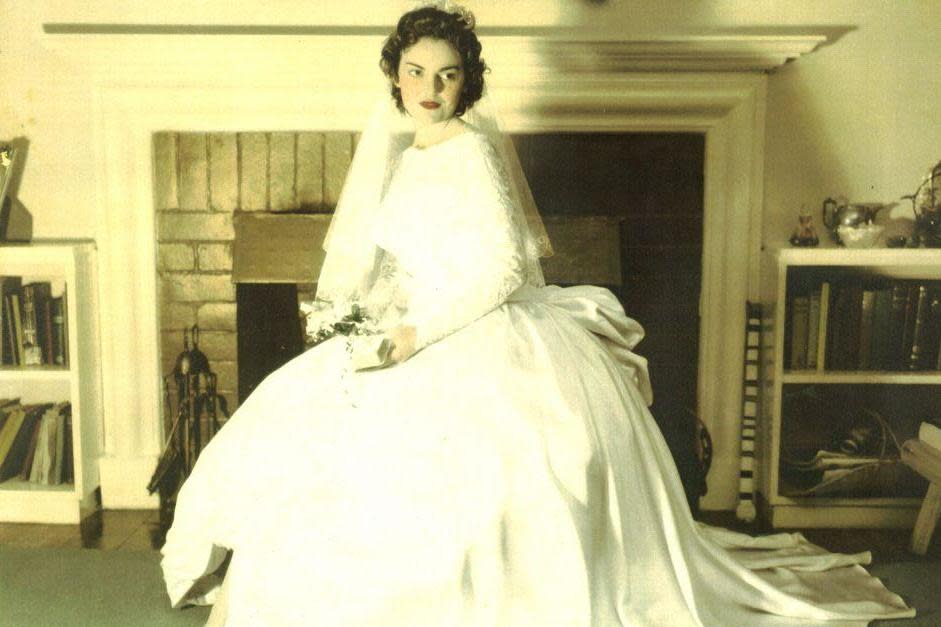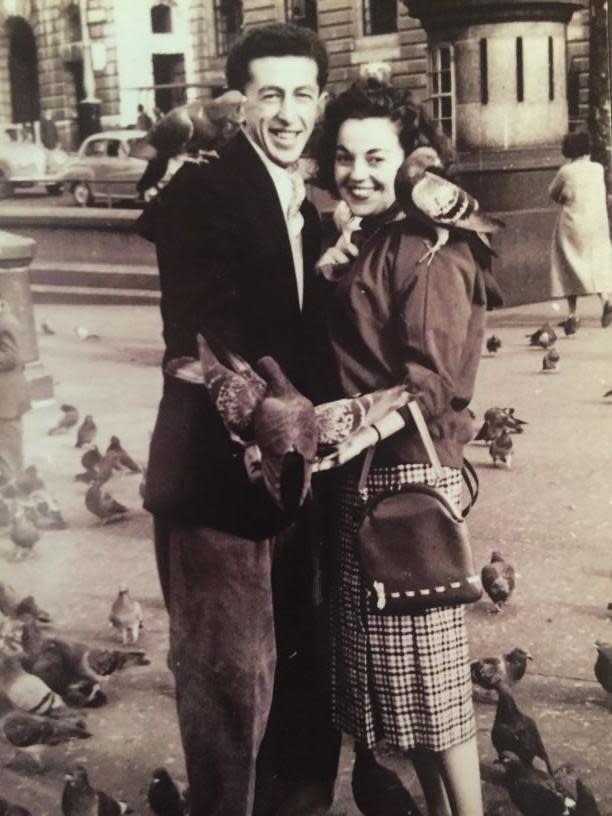The last time I reached my mum: how reading provided a final connection

My wife and I flew to Johannesburg and rushed to my childhood home where my mother, Jeanette, was critically ill.
My father ushered us in to their bedroom, where a breeze ruffled the curtain and Classic FM played softly from a radio at her bedside table.
“Hello, mama,” I said. “May I kiss your forehead?” My mother lay motionless, her eyes closed, and gave the faintest of nods. I leaned down and kissed her soft skin. Jeanette had turned 80 in January but she was now incredibly frail. I was her only son, the eldest of her four children, three of us living overseas, and since her health had deteriorated we took turns to visit every few months. Usually my mother would summon the strength to give me a welcome but this time her mouth and eyes remained shut.
My dad offered us tea. Suddenly my mother spoke. “Go away,” she said, her voice barely audible. I froze. “Go away, David,” she repeated. “I want you to go away.”
Something inside me crumbled. “You can’t take it personally,” my dad, Maurice, reassured me when we were out of the room. “Every day is incredibly hard for her. She is not always herself. We take it day by day.”

It was hard to believe this was the same vivacious woman who had accompanied me to London Fashion Week in 2009 only for paparazzi to surround her, convinced that, with her unique fashion sense, she was a famous Italian designer. The same mother who had once spotted Nelson Mandela at the airport while waiting for me to come through customs and with characteristic chutzpah had walked up to him and said: “Nelson Mandela, so nice of you to come to the airport to meet my son.”
I stood by her door, took in her bedroom — lovingly decorated floor to ceiling with photos of her children and grandchildren — and said: “OK, I will see you tomorrow.”
Born in Nairobi, the daughter of a rabbi, my mother had a peripatetic childhood, growing up in Johannesburg, Sydney and Los Angeles — where she graduated with a BA in music from Chapman College and performed recitals as a concert pianist. Jeanette, or Jeanie as everyone called her, returned to Johannesburg after her degree, married my dad and, apart from a few years living in the UK — where I was born — had lived in Johannesburg ever since.
But five years ago, my mother was diagnosed with a rare, slow-moving blood cancer called Waldenström Macroglobulinemia. At first she carried on with her trademark joie de vivre but in the past two years, as the protein count in her blood crept upwards and caused a thickening of the blood (called hyperviscosity), she needed chemotherapy. My once outgoing mother withdrew from the world, telling friends they should no longer visit, and barely left her bedroom.

Only my father, her live-in care worker and us children were allowed into her inner sanctum. Now, six months after her last chemo treatment, her protein levels were rising again and this time she was too weak for further treatment.
I arrived the next morning to find my mother lying as before. My dad was at work — at 81, he still puts in morning shifts at his almost-wound-up furniture business — and I hoped mum might enjoy the companionship.
But knowing what to say was not easy. Questions such as “How are you feeling?” irritated her. What my mum wanted was for me to tune in to her reality. Every day was a battle against pain, hopelessness and boredom. I thought I got this as I lay down beside her, clasped her hand and tried to connect.
After a short while she spoke. “I thought I told you to go away,” she said. “OK, mum,” I said, “I will go and sit in the lounge but I have flown a long way to see you. I’ll be back in 20 minutes.”
On my return, I tried a new tack. “Would you like me to read to you?” I asked. Her nod was barely perceptible. I pulled out a slim volume called String Theory — a series of brilliant tennis essays by David Foster Wallace — and began to read his piece on Roger Federer, my mother’s favourite player.
I must have read for three hours. My mother had still not opened her eyes. Then later the masseuse arrived for my mother’s bi-weekly massage. I watched as my mother opened her eyes, greeted her and smiled. It stung.

That night I went out for dinner and my friend, a cancer survivor, gave me some brutally direct advice. “You are here to give, not to get,” she said. I thought I’d come with precisely that mindset but the subtle truth is that a child can unconsciously expect a parent to be a parent — and that can involve wanting something from them that they no longer have the strength to give.
The next morning I arrived with a new clarity and as I entered the bedroom I was in for a surprise. My mum was sitting up. Her eyes were open. She smiled when she saw me. We spent a wonderful day reading and reminiscing. When I phoned to tell my dad, I could hear how happy he sounded. I felt I had broken through.
But the following day my mother’s energy dipped and she seemed unreachable once again. I approached the last day of my visit with trepidation.
When I entered the bedroom my mum was sitting up again, eyes open, eagerly waiting for me to read. I rooted around the house and found a New York Times bestseller called Kitchen Table Wisdom by cancer expert Rachel Remen, and my wife Pam and sister Yoni (who lives locally) joined us as I randomly opened the book, alighting on a chapter about dying and the questions that cancer patients might have but don’t want to ask loved ones.
We were all in tears as I read, except for my stoic mother, who rebuked my sister: “What’s wrong, Yoni, why are you crying?” My mother knew exactly why. Somehow I had stumbled upon a book that helped us talk about stuff we needed to talk about but found so hard to do directly.
When we left for the airport I hugged my mum and said: “That was a beautiful afternoon.” She beamed. “Yes, it was special,” she said.
Back in London, I called my mum every few days. “Hello, David,” she would say, her voice mellifluous and clear as a bell but then her voice would fade almost to nothingness. I knew that one day I would no longer hear her say my name. I treasured it every time she did.
And then one afternoon last month my normally rock-solid dad was on the phone, his voice faltering in a way I had never heard before. We flew back that night for the funeral.
When a parent dies, you are liberated to connect to the full richness of their whole life, in sickness and in health. Yet sometimes in my mind I still go back to that day I last reached my mother. Classic FM is playing softly, the curtain twitches ever so slightly in the breeze, my mother lies on her back, attentive, her eyes closed. And I am reading.
My mother, Jeanette Cohen, died in her bed on October 10, 2017.

 Yahoo News
Yahoo News 